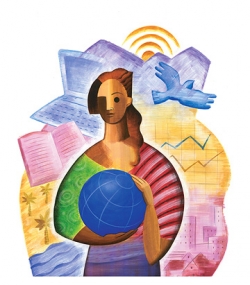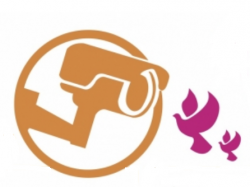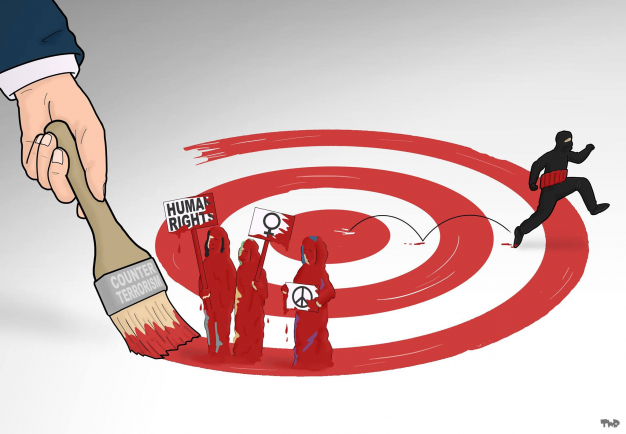Blog written by WPP Staff
The Women Peacemakers Program (WPP) is gearing up for the 59th session of the Commission on the Status of Women (CSW), taking place at the United Nations Headquarters in New York during the next two weeks. WPP will be joining the discussions through a series of parallel events aimed at sharing the insights gathered from the WPP network over the years. In this blog we will explore what is on the agenda for the upcoming CSW, and the topics we look forward to addressing.
 Although the CSW59 should be a celebration of the 20th anniversary of the Beijing Declaration and Platform for Action (BPfA), the start of the CSW illustrates the challenges and obstacles that the women’s movement faces in implementing the transformative and political message of the BPfA. Active participation in the development and negotiation process of the Political Declaration was limited for civil society, with specific Member States working hard to keep references to progressive language, specifically in relation to human rights, as limited as possible. In response, women activists following the processes in NYC, managed to mobilize over 700 organizations from all over the world within 24 hours, issuing a strong statement that the final declaration does not do justice to what women need and demand in terms of gender equality and just societies.
Although the CSW59 should be a celebration of the 20th anniversary of the Beijing Declaration and Platform for Action (BPfA), the start of the CSW illustrates the challenges and obstacles that the women’s movement faces in implementing the transformative and political message of the BPfA. Active participation in the development and negotiation process of the Political Declaration was limited for civil society, with specific Member States working hard to keep references to progressive language, specifically in relation to human rights, as limited as possible. In response, women activists following the processes in NYC, managed to mobilize over 700 organizations from all over the world within 24 hours, issuing a strong statement that the final declaration does not do justice to what women need and demand in terms of gender equality and just societies.
Besides reflecting on the current challenges in regards to implementing the BPfA and calling for progress instead of deterioration, also on the agenda is the Global Study on United Nations Security Council Resolution (UNSCR) 1325, led by UN Women, leading up to the High-Level Review on UNSCR 1325 later this year. UNSCR 1325 was a direct result of women’s creative and sustained lobbying and advocacy efforts in the aftermath of the BPfA. At the CSW, we will be discussing the progress of UNSCR 1325 15 years into its implementation – the obstacles, successes and lessons learned.
The Beijing Declaration recognized the link between achieving peace and the advancement of women, emphasizing that women’s active participation is fundamental for transformative leadership, conflict resolution and the promotion of sustainable peace (Beijing Declaration, article 18). It also affirmed that implementation of the Beijing Declaration, and the complementary Beijing Platform for Action, should not be narrowed to women alone, that men too have to be actively engaged in actions for gender justice (article 25). Translating the Declaration into specific actions, the BPfA took a holistic approach to addressing the topic of women in the context of armed conflict. By adding important elements such as the need for reduction in military expenditures, investing in disarmament and nonviolent alternatives to deal with conflict, the BPfA went beyond just adding women to existing peacebuilding structures. It addressed the very gendered nature of how humanity is dealing with conflict in itself.
In discussions with WPP partners, in events such as the Global Consultation on Gender and Militarism (July 2014), it has become evident that the current implementation of UNSCR 1325 has lost much of this transformative focus, as it rather scratches the surface, falling short in addressing the patriarchal roots of conflict. During the CSW59, WPP will be advocating for a re-examination of the BPfA, emphasizing the need to reaffirm its transformative values, and translate this into transformative 1325 action.
In the upcoming week, WPP and its partners will organize three panel discussions on three WPS-related themes: masculinities, militarism and the effects of counterterrorism measures (Click here for more information on events). These panel sessions will also generate recommendations for the UNSCR 1325 Global Study.
On March 11, two panel discussions will emphasize the importance of integrating a masculinities approach in the WPS agenda, and as such, apply a truly holistic gender lens to militarism. On March 12, we will take a closer look at one of the emerging issues affecting UNSCR 1325 implementation: counterterrorism measures. Together with its partners, WPP will discuss the challenges these measures pose for women civil society organizations, bringing stories from the field and formulating recommendations on how to ensure and maintain an enabling environment for women’s organizations to do their peace work.
WPP staff and network members will be present in New York during the first week of the CSW, and will keep you informed about the various meetings and events. Stay up-to-date by following us on Facebook & Twitter.
11 Dec '17 This month WPP staff interviewed Arbia Jebali and Sarah Chamekh from Free Sight Association in Tunisia about the work their organization does, how civil society space has changed over the years, which challenges they are facing now, and how civil society in Tunisia is organizing itself to overcome those challenges.
7 Nov '17 In this article, WPP staff interviewed Doron Joles of XminY Fund, an activist organization that supports social movements, action groups and changemakers fighting for a fair, democratic, sustainable and accepting world. He discusses the unique way they have chosen to hand out funds, and the challenges that go along with funding small activist organizations in the current global climate.

25 Oct '17 This Friday, the UNSCR 1325 Open Debate will take place once again, seventeen years since the adoption of landmark UN Security Council Resolution 1325 on Women, Peace and Security. In this article WPP staff reflects on the progress made for a truly transformative feminist peace agenda until now.
